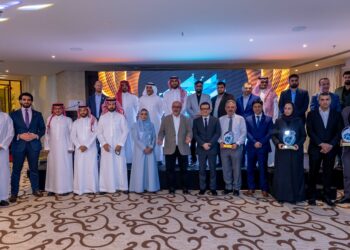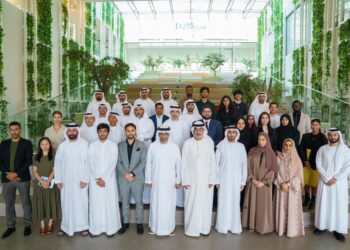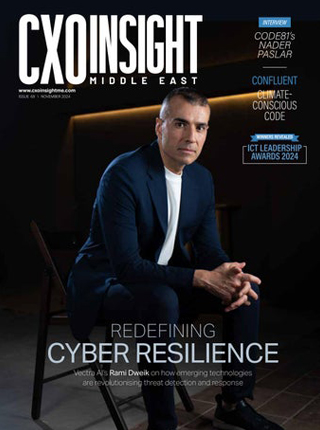The ITU Arab Regional Cyber Security Center (ITU-ARCC), in partnership with Huawei, launched a new programme to help strengthen the cybersecurity industry in the Arab region. Titled the ‘Cybersecurity Industry Development Strategy Maturity Module (CIDSMM),’ the programme provides a comprehensive guide for regulatory authorities, industry stakeholders, and academic researchers to assess and improve their cybersecurity capabilities.
The first of its kind in the region and the world, the programme is designed specifically for the Arab region’s cybersecurity industry. The programme is one of the key outcomes of a partnership between ITU-ARCC and Huawei that was established in May this year to promote knowledge transfer, capacity building, and collaboration in the Arab world’s cybersecurity sector. The initiative was announced at the 11th Regional Cybersecurity Summit in Abu Dhabi, which brought together international experts and speakers to share their experiences and best practices in this field.
Eng. Badar Al Salehi, Director General, Oman National CERT and Head of the ITU Arab Regional Cybersecurity Centre (ITU-ARCC), said, “In light of the cybersecurity market witnessing a steady increase, reaching more than 270 billion dollars, it is expected to reach 600 billion dollars.” Dollars by 2025; our signing of this agreement comes in line with the cybersecurity industry initiative that the Sultanate launched last November, through which we seek to enhance the environment for the cybersecurity industry in the Arab countries.”
Aloysius Cheang, Chief Security Officer, Huawei Middle East & Central Asia, said, “We are honoured to collaborate with ITU-ARCC to launch this groundbreaking programme, which aims to provide strong fundamentals that will strengthen the cybersecurity industry in the Arab region. This programme will provide comprehensive guidance for developing cybersecurity strategies and policies that will not only serve as a benchmark but also offer insights and action plans to remediate a research mechanism that will uplift the quality of any national cybersecurity programme from technology and industry verticals perspectives. ”
By implementing this programme, Huawei aims to create a vibrant Arab cybersecurity ecosystem where results and action plans can be shared as a success case stories for adaption by other Arab nations, thereby promoting success and alignment and reducing opportunity cost of failures. It will also provide pillars of collaboration via a public-private partnership model for practical academic research and innovation in cybersecurity, fostering regional digital talents to bridge the digital divide and uplift the regional cybersecurity industry maturity as a whole.
The assessment programme aims to provide a guideline for measuring and enhancing the cybersecurity maturity of various entities involved in the digital ecosystem, such as digital infrastructure protection, data security, cloud computing security, emerging technology, and telecommunication security, among others. CIDSMM provides accurate and effective information to support developing a long-term cybersecurity strategy, helps to identify best practices from other countries to summarise lessons learned for self-improvement, provides a national baseline for building cybersecurity capacity, and drives demand for cybersecurity-related services, products and services, growing commercial revenues or contributing to industry growth.
Huawei believes that cybersecurity is a shared responsibility that requires a team effort from all stakeholders. Public-private partnerships are essential to identify risks, prevent cyber-attacks, and protect data and assets. Such partnerships enable information sharing, joint development of cybersecurity solutions, and adoption of best practices. By leveraging the strengths of both sectors, governments and businesses can improve their defense capabilities, proactively detect and respond to threats, and ensure the overall security of critical infrastructures.
Huawei is committed to dissolving boundaries and working with partners worldwide to build an industry that works for everyone. We work with, share with, and create new opportunities for our ecosystem partners. That is how we create value for ourselves and the wider community.










Discussion about this post